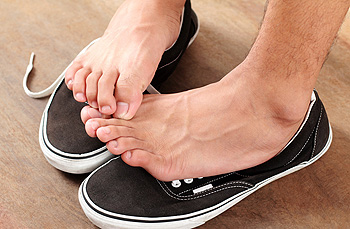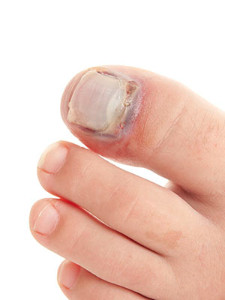 If you have the experience of something heavy falling on your foot, you may have what is referred to as a broken toe. Common signs from this occurring will be swelling and bruising affecting the toe and surrounding area, accompanied by severe pain. If the bone protrudes from the skin, this is typically known as an extreme fracture, and medical attention should be sought as soon as possible for treatment. If the break is not severe, the toe will benefit from being elevated, which may aid in reducing any obvious swelling. A common treatment technique involves bandaging the injured toe to the toe next to it, and this may promote stability and proper healing. It may be suggested to wear comfortable shoes with adequate room for the toes, and the use of crutches may be beneficial in keeping weight off the foot. If you feel you may have broken your toe, see a podiatrist immediately for a proper diagnosis and additional information.
If you have the experience of something heavy falling on your foot, you may have what is referred to as a broken toe. Common signs from this occurring will be swelling and bruising affecting the toe and surrounding area, accompanied by severe pain. If the bone protrudes from the skin, this is typically known as an extreme fracture, and medical attention should be sought as soon as possible for treatment. If the break is not severe, the toe will benefit from being elevated, which may aid in reducing any obvious swelling. A common treatment technique involves bandaging the injured toe to the toe next to it, and this may promote stability and proper healing. It may be suggested to wear comfortable shoes with adequate room for the toes, and the use of crutches may be beneficial in keeping weight off the foot. If you feel you may have broken your toe, see a podiatrist immediately for a proper diagnosis and additional information.
A broken toe can be very painful and lead to complications if not properly fixed. If you have any concerns about your feet, contact one of our podiatrists from Foot Health Center of Merrimack Valley. Our doctors will treat your foot and ankle needs.
What to Know About a Broken Toe
Although most people try to avoid foot trauma such as banging, stubbing, or dropping heavy objects on their feet, the unfortunate fact is that it is a common occurrence. Given the fact that toes are positioned in front of the feet, they typically sustain the brunt of such trauma. When trauma occurs to a toe, the result can be a painful break (fracture).
Symptoms of a Broken Toe
- Throbbing pain
- Swelling
- Bruising on the skin and toenail
- The inability to move the toe
- Toe appears crooked or disfigured
- Tingling or numbness in the toe
Generally, it is best to stay off of the injured toe with the affected foot elevated.
Severe toe fractures may be treated with a splint, cast, and in some cases, minor surgery. Due to its position and the pressure it endures with daily activity, future complications can occur if the big toe is not properly treated.
If you have any questions please feel free to contact one of our offices located in North Andover, and Tewksbury, MA . We offer the newest diagnostic and treatment technologies for all your foot and ankle needs.



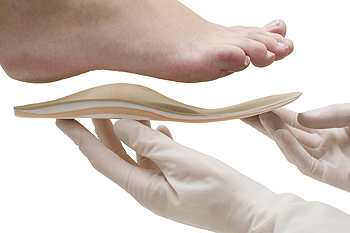
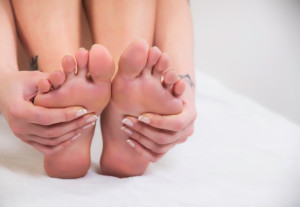
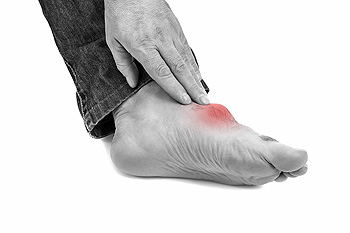 Gout
Gout
